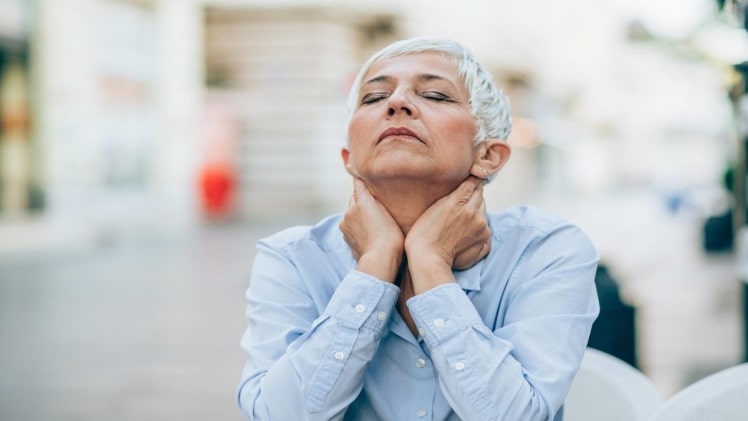Menopause – often called ‘the change’ – is a natural part of the human aging process. It happens when you fail to get your period for 12 consecutive months, and you are otherwise healthy and not pregnant and is caused by a natural drop in the levels of the female sex hormone. Generally, most women experience menopause between the ages of 40 and 50, but this can vary greatly. Let’s learn more about this process and the New York menopause that you can explore if menopause is affecting your quality of life.
How Can You Identify Menopause Signs?
Menopause signs are not very precise, and they could appear months or years before you enter menopause. A period called perimenopause involves symptoms like irregular periods and hot flashes. Even after its onset, you cannot accurately gauge when you experience menopause, so you have to pay attention to the signs. Remember, symptoms will vary from one person to another, and other women might not experience symptoms. If you do, you might notice the following:
-
Night Sweats and Hot Flashes
Hot flashes occur as sudden episodes of hot or warm sensations that occur for no apparent reason. Your heart may beat faster, your skin might flush red, and you may suddenly feel cold again. Like hot flashes, night sweats occur in much the same way but happen when asleep. They can be intense enough to wake you up from sleep and last for 1 to 5 minutes. You can have them weekly or even several times a day, depending on your body. They can be mild and passing or severe and debilitating.
-
Irregular Periods
Irregular periods are the hallmark sign of menopause or perimenopause. Usually, your periods will be lighter or heavier, appear more or less often, or last shorter or longer than before. During perimenopause, you might have trouble predicting your next period, its heaviness, or how long it will last. You can still get pregnant, but it is more difficult.
-
Sleeping Problems
Many people experience sleeping problems that cause them to wake up at night or have trouble falling asleep. However, if you have never had such problems before, developing them around your 40s or 50s could be a sign of menopause. Where sleep is concerned, you should discuss your concerns with your doctor.
-
Changes in Libido
After menopause onset, some women report a decrease in their interest in sex and low arousal levels. This low sex drive can be attributed, in part, to the drying of the natural vaginal mucus membrane, which can make intercourse painful. On the other hand, some women claim to enjoy sex more because they need not worry about getting pregnant.
-
Moodiness
During menopause, little things can affect your mood easily and leave you feeling irritated, angry, or sad. People that have depression or anxiety can also experience worsening symptoms. It is important to discuss this symptom with your doctor and explore possible medical solutions like hormone replacement therapy (HRP).
Final Thoughts
Menopause is a natural and beautiful stage of life and the aging process. However, if your menopause symptoms begin to affect your quality of life and emotional or physical well-being, you should consult Dr. Inga Zilberstein, MD, PLLC. Dr. Inga provides solutions to help support your lifestyle and health needs before, during, and after menopause. Book an appointment online or call his office today.

